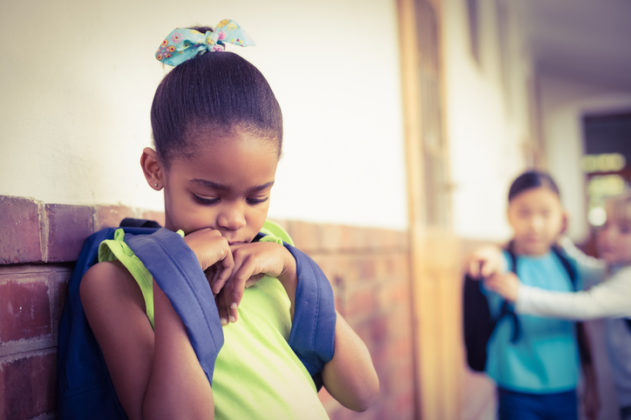This is what happens when kids grow up. Innocent actions are suddenly seen as inappropriate, disrespectful, and a form of harassment.
Earlier this school year, my eight-year-old son did something “inappropriate” at school. During lunch, he lifted his shirt and showed his stomach to the boy sitting next to him. A female classmate sitting across from him saw my son’s stomach, felt uncomfortable, and reported the incident to their teacher.
Later that afternoon, while my son snacked on popcorn, we sat on the couch and talked. I asked him what he did and why. He said he had lifted his shirt to show his tummy to his new friend, but they were just laughing, exchanging funny stories, and being silly,
“I didn’t know anyone would be uncomfortable. I wasn’t trying to be disrespectful,” my son told me with tears in his eyes.
“I know you weren’t,” I said. “At home, if you did that, I’d reach over and tickle your tummy. But at school, it’s different. We can’t do all the same things at school — or anywhere — that we can do at home.”
This is what happens when kids grow up. Innocent actions are suddenly seen as inappropriate, disrespectful, and a form of harassment. And I know from experience. I was an elementary school teacher for twelve years, and once kids reach third grade (my son’s current grade), the stakes are higher, the tolerance level is lower, and the consequences are more severe.
Over the years, I saw students suspended for quoting inappropriate rap lyrics or turning an index finger and thumb into an imaginary gun. These students didn’t make the best possible choices in the moment, but they didn’t intend to do any harm. Still, they were suspended in the name of a zero tolerance policy.
One young girl, a model student, was suspended in third grade because — out of frustration and anger — she told another student that she was going to kill her. She didn’t mean it, just like I didn’t mean it when I said my mom would kill me if I brought home a bad grade when I was a kid. But today, school personnel take these types of comments very seriously.
I’ve been thinking of these students since the stomach-showing incident. Now, I’m on high alert.
If my son leans over to burp near my face and laugh, I remind him not to do that at school. When he repeats a questionable line from a movie, like “You’re killing me,” I remind him that he can’t say violent words like ‘kill’ at school.
As my son is growing up, I find that he’s walking a tricky line of learning how to be himself while also conforming to the rules and expectations around him. As his parents, we’re walking the same line.
At home, my son is honest. He tells me if he doesn’t like the way I’ve parted my hair. He tells me if he doesn’t like the smell of the eggs I’m cooking or the look of the green smoothie his Daddy just made. And that’s fine. But I remind him that, at school, he has to keep those thoughts to himself. He’s older now. People expect him to know right from wrong. Even when he isn’t trying to hurt anyone’s feelings or be disrespectful, sometimes other people might see it that way.
The other day, my son was dancing at the playground and he struck a Michael Jackson pose —one hand raised up with the other near his ‘private parts.’ Back at home, I told my son that while I knew who he was pretending to dance like, others might not. If he danced like that at school, someone might tell on him for touching himself inappropriately.
As a former teacher and parent, I can see both sides of the situation. Yes, our schools are supposed to be places where children are safe — both physically and emotionally. But just as children learn to walk by taking steps and falling down, they will also learn proper social behavior by sometimes making mistakes — by saying or doing something that isn’t terrible, but isn’t quite proper either.
My husband and I don’t always know how we’ll handle a particular situation until we’re faced with it, and we don’t always know where to draw the line between a young child’s innocent actions and a growing boy’s inappropriate behavior. But our family is doing its best to figure it all out together.
Wendy Kennar is a former elementary school teacher and a freelance writer who finds inspiration in her 8-year old son. Her writing has appeared in several publications and anthologies, both in print and online. You can read more from Wendy at wendykennar.com.
Other Links:

